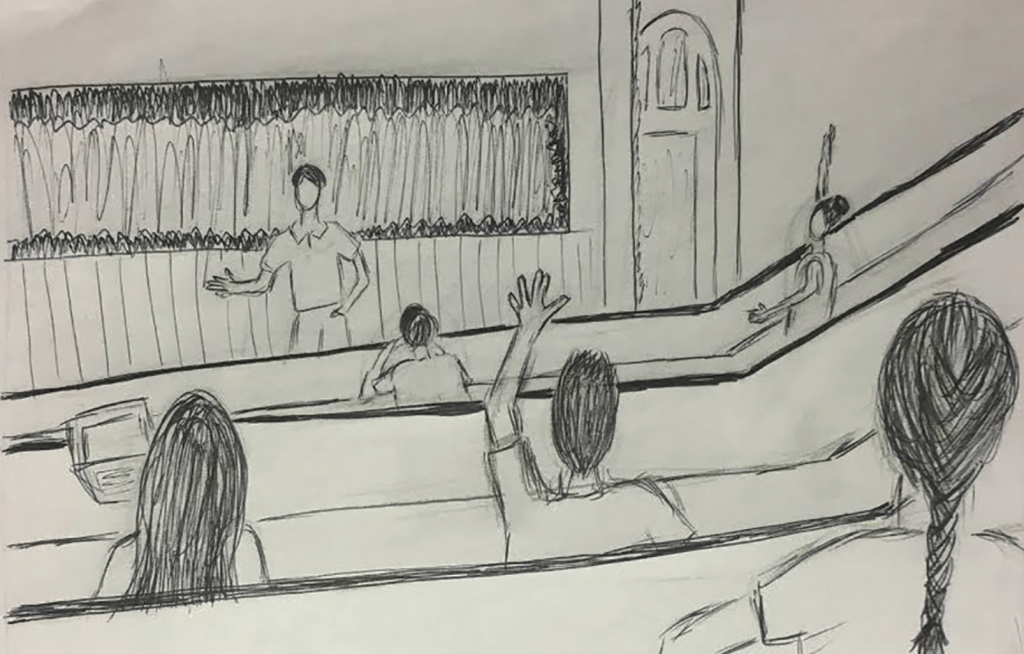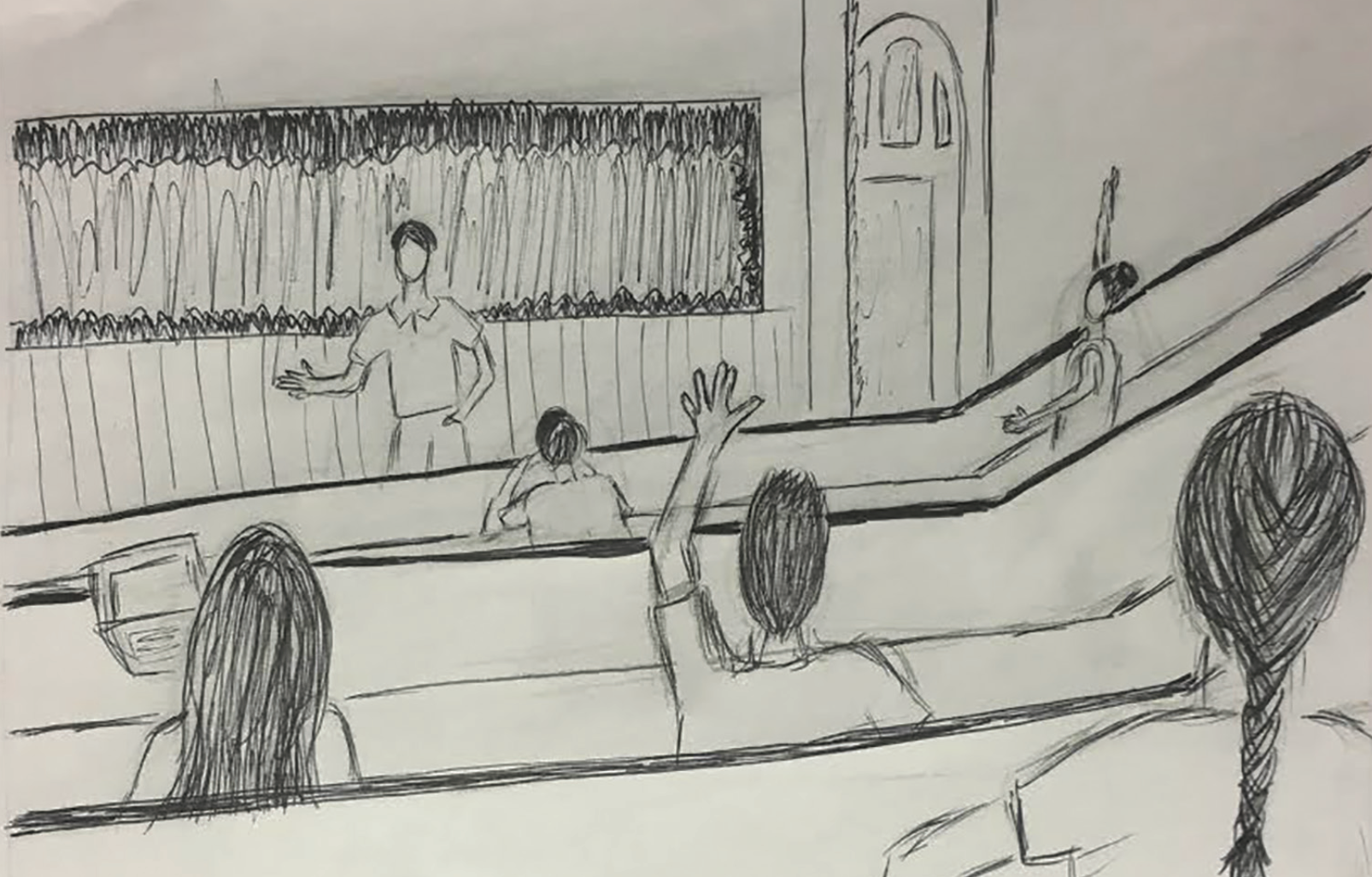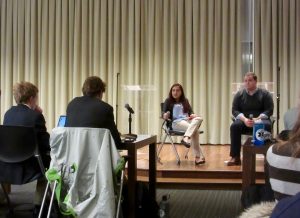Every so often, GUSA calls on the student body to speak as a whole. These referendums are often held up as the most forceful of the tools that GUSA can wield toward directing administrative policy. Our elected student leaders point to these undertakings as pivotal events for asserting student positions in campus discussions.

Eleanor SugrueGUSA
As past campus debates on issues like the satellite campus have made clear, these referendums often do serve this purpose. This Editorial Board, however, believes that GUSA has fallen short in managing the referendums they hold so dear. At best, when conducted transparently with a clear purpose, referendums amplify the voice of the student body on the most important campus issues. At worst, these votes advance the priorities of GUSA with little regard for the wider student body. Recently, they have too often taken the latter form.
Two recent issues have highlighted this problem: pre-registration and divestment from fossil fuels. On the first, GUSA eventually decided to host a referendum. On the second, it declined to do so.
GUSA voted against holding a referendum over the issue of divestment largely due to its belief that it would prove difficult, if not impossible, to achieve a high enough level of education on this issue among students for the referendum to have meaning.
At the Senate’s Nov. 15 meeting, Senator William Morris (COL ‘19) said, “My concern would be that the campaign would only cover one side of the issue.” He and others argued that, aside from Deep Dheri (MSB ‘16), a student who publicly voiced his opposition to the referendum, no one would step up and campaign against Fossil Free, and that students would therefore be biased in their voting.
Another senator voiced his concern. “People are going to read this as ‘do you want to help the environment?’ and would not have a clear counterargument available. ‘It’s not going to be fair; I think it’s going to be pushed one way,’” he said.
GU Fossil Free, the group most active in advocating for divestment, issued a statement in response, which read, in part, “In order to alleviate concerns on lack of education, GU Fossil Free proposed and reached out to third party groups and those willing to argue in opposition to divestment to create unbiased and comprehensive educational materials.” This proposal failed to satisfy GUSA’s concerns, and the referendum never got off the ground.
With pre-registration, on the other hand, GUSA has shown much less worry about the level of issue awareness among the student body. Following a town hall on the issue, when then-Registrar John Q. Pierce told attendees that he felt a student-wide referendum would be premature without first working with the Academic Councils, GUSA voted on Jan. 24 to add a referendum on the issue to the Executive ballot. At the meeting, Senators Eric Henshall and Michael Fiedorowicz both explained that a two-week informational campaign would be part of the referendum process to educate the students.
This campaign was insubstantial at best, with a flimsy flyering effort that failed to convey any justification for either position, and failed to help voters make an educated choice. Why, in the case of divestment, did the complexities of such an informational campaign pose an insurmountable obstacle to holding a referendum, yet make for so insignificant a concern in the case of pre-registration that an informational campaign never actually took place?
It has to do with GUSA’s priorities.
In the case of pre-registration, GUSA’s priorities were clear. Senators said during the debate on the resolution to add a referendum that they believed the administration had misinterpreted students’ opinions on live registration, and called an assumption that students support live registration “inaccurate.” GUSA felt confident that the student body would line up behind its hope to avoid live registration, and therefore used a referendum as a way to give greater power to its own opinion. The problem of an informational campaign, so crippling in the first case yet a non-issue in the second, served as a convenient excuse for GUSA to select for its preferences.
Our elected student leaders hold up referendums as polling tools for discovering the will of the student body. In the lengthy debate on whether or not to hold the divestment referendum, several senators argued that referendums should be reserved for discerning and promoting students’ voices on issues that are pertinent to student life. But recently, they have not been used this way. Instead, they have been used as tools for reinforcing those policies GUSA has already decided are beneficial for Georgetown students.
There is no doubt that referendums can direct campus policy. They are the most powerful forums available for student participation in policy-making at Georgetown. Given the force they possess, referendums must be administered with transparency. If they are to be a means of polling for student opinions, then GUSA should not get in the way of a referendum that might go against its own wishes. If not, GUSA should stop pretending otherwise and drop any pretense of asking for student input in its decisions.







